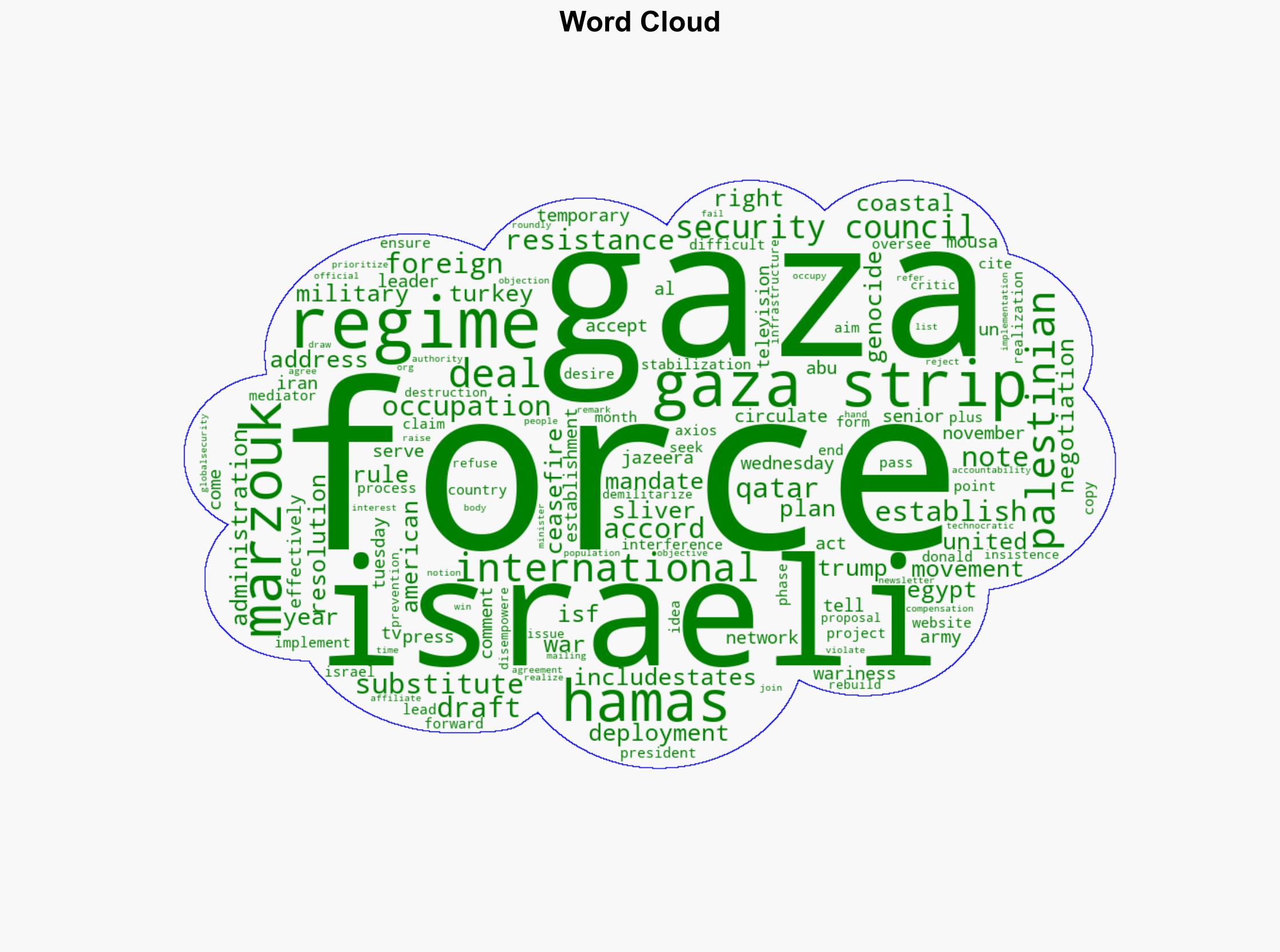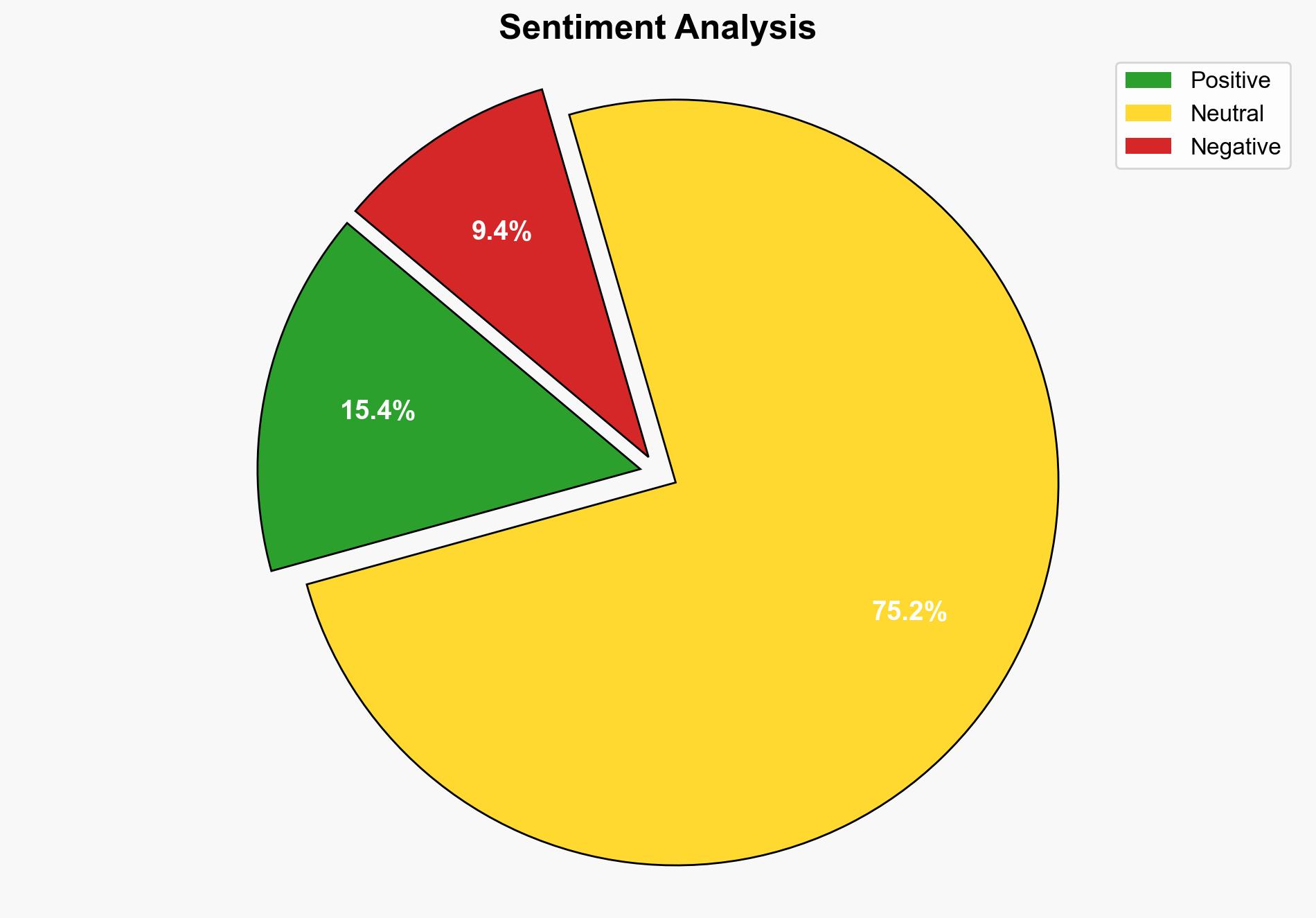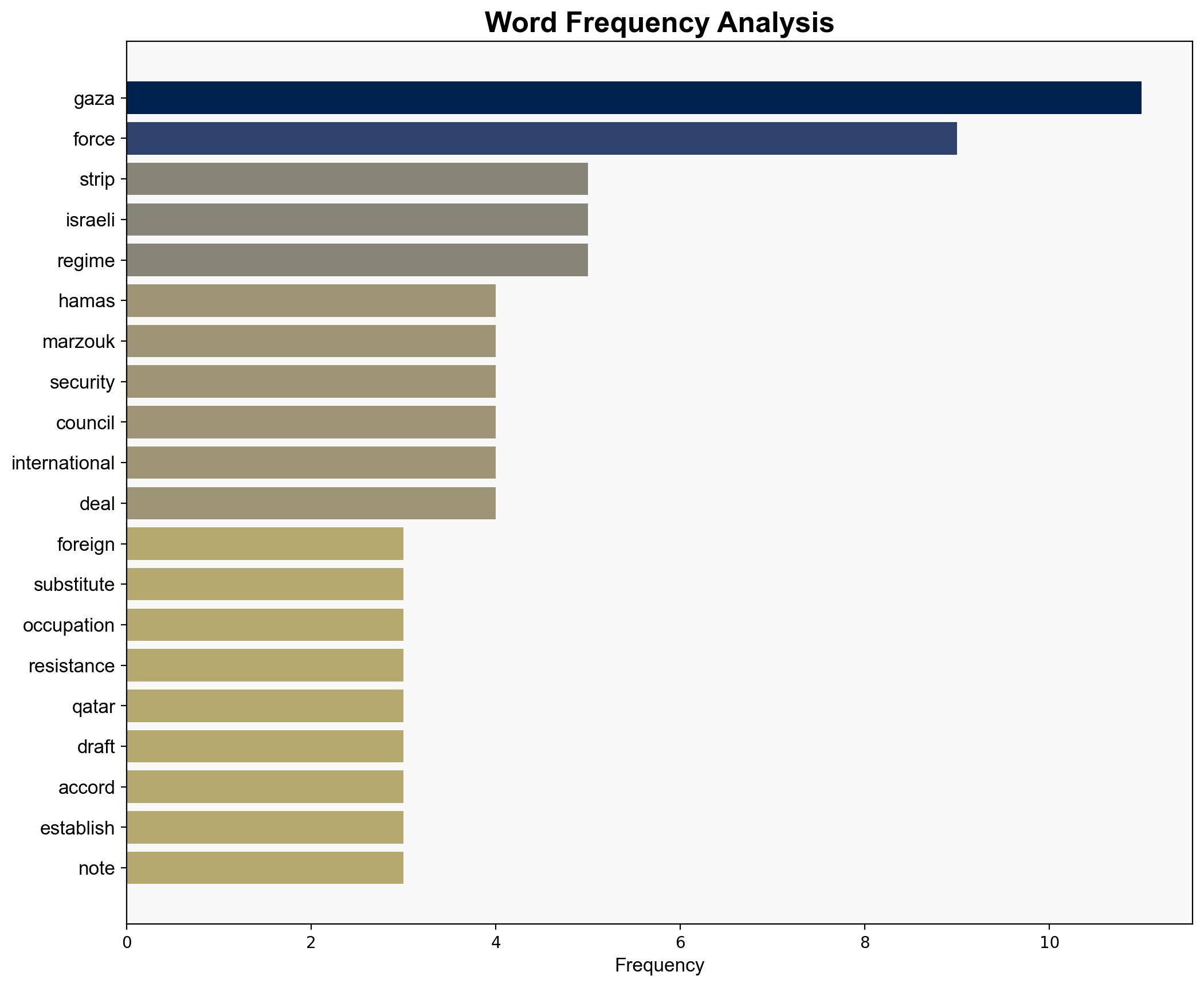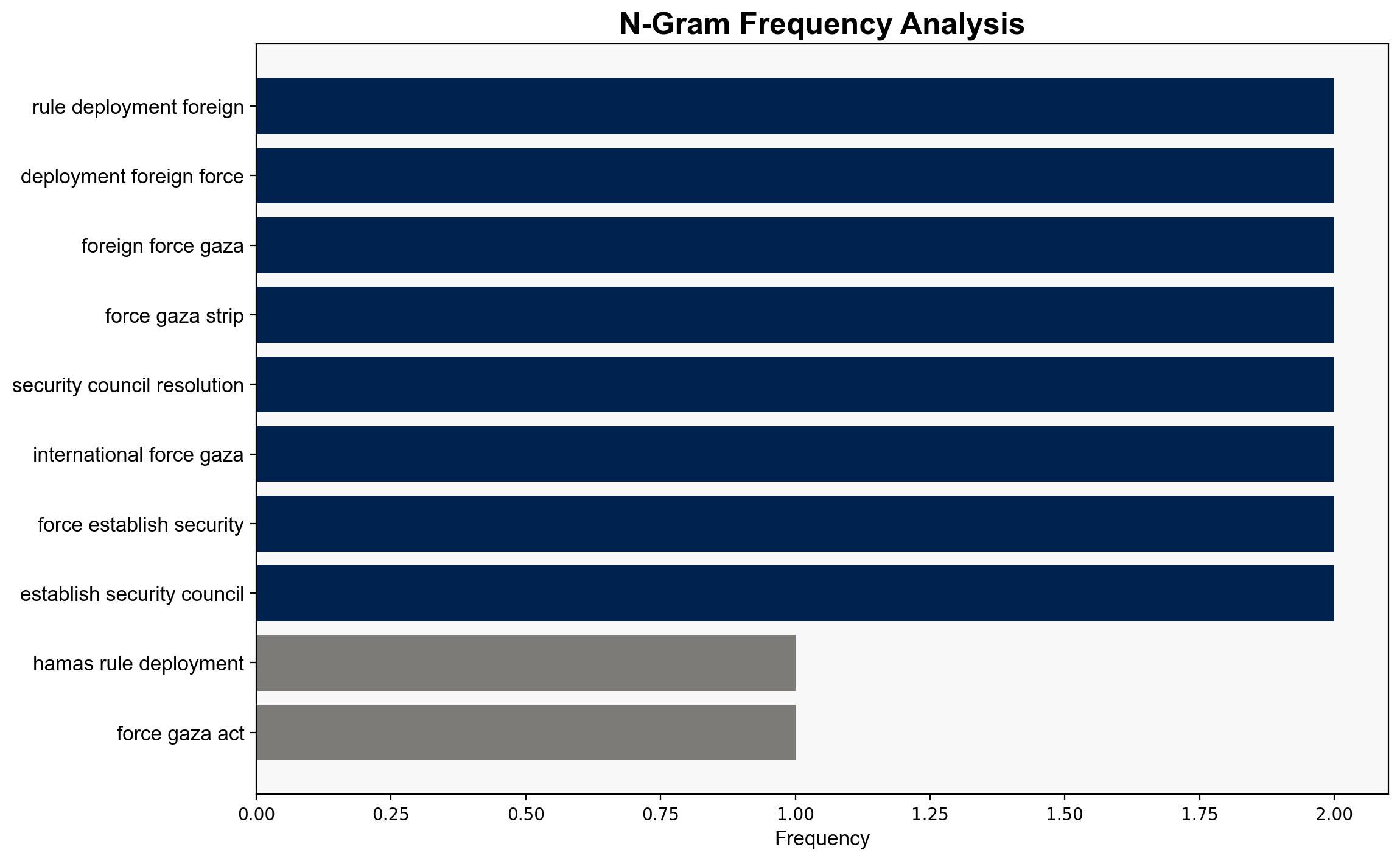Hamas rules out deployment of foreign force in Gaza that would ‘act as substitute for occupation’ – Globalsecurity.org
Published on: 2025-11-06
Intelligence Report: Hamas rules out deployment of foreign force in Gaza that would ‘act as substitute for occupation’ – Globalsecurity.org
1. BLUF (Bottom Line Up Front)
The most supported hypothesis is that Hamas’s rejection of a foreign force in Gaza is a strategic move to maintain its influence and resist external control, particularly from entities perceived as aligned with Israeli interests. Confidence level: Moderate. Recommended action: Monitor diplomatic engagements and prepare for potential shifts in regional alliances.
2. Competing Hypotheses
1. **Hamas’s Rejection as Strategic Autonomy**: Hamas is rejecting the deployment of a foreign force to maintain its autonomy and control over Gaza, viewing any such force as a potential tool for external powers to undermine its authority and influence.
2. **Hamas’s Rejection as Tactical Negotiation**: Hamas’s stance is a negotiation tactic aimed at securing better terms in any future agreements, using its rejection as leverage to extract concessions from international mediators or Israel.
3. Key Assumptions and Red Flags
– **Assumptions**:
– Hamas perceives any foreign force as inherently biased or aligned with Israeli interests.
– The international community is willing to negotiate terms that might be more favorable to Hamas.
– **Red Flags**:
– Lack of clarity on the composition and mandate of the proposed international force.
– Potential bias in reporting from sources with vested interests in the outcome.
4. Implications and Strategic Risks
– **Geopolitical Risks**: Increased tensions between Hamas and countries proposing the international force, potentially leading to diplomatic standoffs.
– **Security Risks**: Potential for escalated conflict if negotiations fail and unilateral actions are taken by either side.
– **Psychological Impact**: Heightened distrust among Palestinian factions and the local population towards international interventions.
5. Recommendations and Outlook
- Engage in diplomatic dialogues with key regional players (Qatar, Egypt, Turkey) to understand their positions and intentions.
- Develop contingency plans for potential escalations in Gaza, including humanitarian aid and conflict resolution strategies.
- Scenario Projections:
- Best: Successful negotiation leads to a mutually agreed-upon international force with clear mandates.
- Worst: Breakdown in talks results in renewed hostilities and humanitarian crises.
- Most Likely: Prolonged negotiations with intermittent escalations and temporary ceasefires.
6. Key Individuals and Entities
– Mousa Abu Marzouk
– Donald Trump
7. Thematic Tags
national security threats, regional focus, geopolitical strategy, conflict resolution





